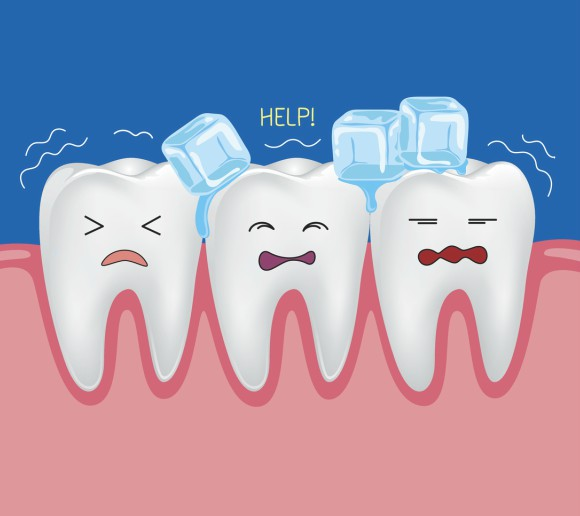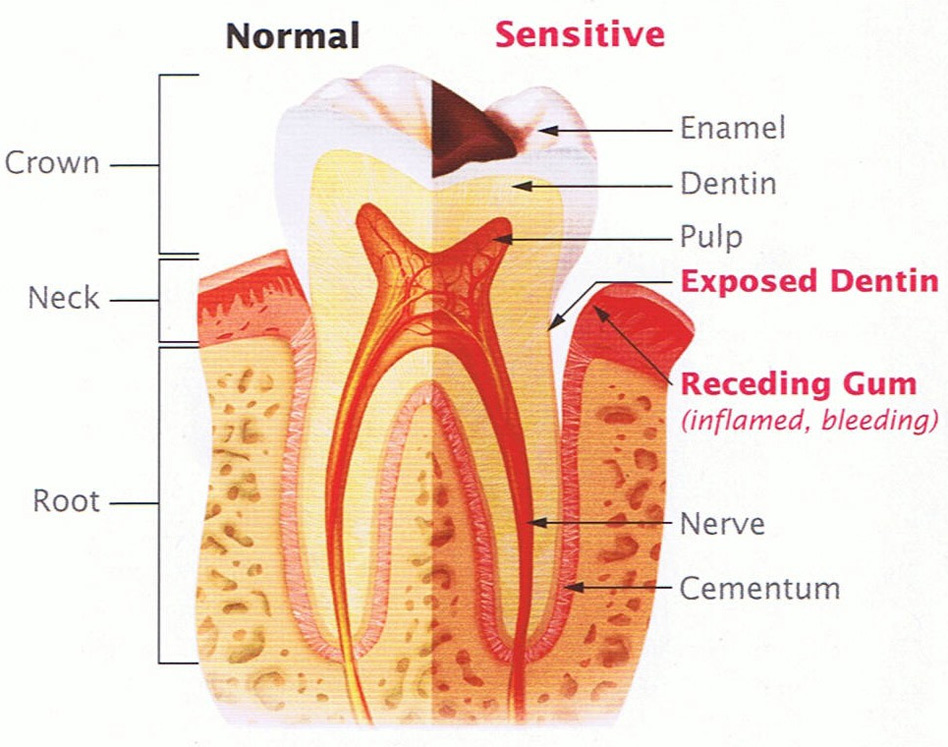

Dental Care for Sensitive Teeth: Finding Relief from Painful Hot and Cold foods is essential for maintaining oral health. Imagine enjoying a refreshing glass of ice water or a steaming cup of coffee without the sharp, stabbing pain. Sensitive teeth are a common problem, affecting millions worldwide. This condition often results in discomfort when exposed to temperature extremes and can significantly impact your daily life, from eating to drinking. In this comprehensive guide, we delve into the causes, symptoms, and effective dental care strategies for managing sensitive teeth and achieving lasting relief. This article will explore various treatment options and discuss preventative measures to maintain a healthy, pain-free smile.
Understanding the Causes of Sensitive Teeth
Identifying the Root of the Issue
Teeth sensitivity can stem from various causes, often arising from exposed dentin. Dentin is the layer beneath the enamel, and when the protective enamel wears away, it exposes the dentin’s tubules, making the teeth susceptible to temperature fluctuations. The most common culprits include gum recession, tooth wear, and enamel erosion. Aggressive brushing techniques, improper flossing, and acidic foods or drinks can also contribute. Additionally, certain medical conditions and dental procedures may play a role.
Lifestyle Factors
Consider the role of lifestyle in your tooth sensitivity. A diet rich in highly acidic foods and drinks can erode enamel, leading to increased sensitivity. Similarly, consuming sugary foods or drinks can create an environment for bacteria that can further damage tooth enamel, impacting sensitivity. Harsh brushing habits can wear away the enamel, also contributing to the problem. Addressing these lifestyle habits can make a huge difference.
Effective Treatment Options for Sensitive Teeth
Desensitizing Toothpastes
Desensitizing toothpastes are often a first-line treatment for managing tooth sensitivity. These specially formulated pastes contain ingredients like potassium nitrate and stannous fluoride that help to block the tubules in the dentin, reducing the sensitivity to hot and cold stimuli. Choose a toothpaste specifically designed for sensitive teeth for optimal results. Be consistent with use for maximum effectiveness, and consult your dentist to see what works best for you and the specific cause of your sensitivity.
Professional Dental Care
Professional dental care plays a critical role in addressing the underlying causes of tooth sensitivity. A dental hygienist or dentist can identify the root cause of the sensitivity and recommend appropriate treatment. They can accurately assess the extent of enamel erosion or gum recession, leading to personalized plans to restore and protect your teeth. They can also help develop a customized oral hygiene routine to prevent future sensitivity.
Managing Sensitivity with Lifestyle Changes
Dietary Modifications
Your diet plays a crucial role in preventing and mitigating sensitivity issues. Minimize the consumption of highly acidic foods and drinks, such as citrus fruits, sodas, and vinegars. It is important to eat slowly and reduce the amount of time teeth are exposed to the acid.
Brushing Techniques
Your brushing technique can significantly affect your enamel. Use a soft-bristled toothbrush and avoid harsh scrubbing motions. Concentrate on gentle, circular motions and avoid pressing too hard on your teeth. Consider consulting a dental professional for personalized guidance on proper brushing techniques, taking into consideration any prior issues with dental health.
Advanced Treatments and Preventive Measures
Dental Bonding
Dental bonding can be an effective solution for treating minor enamel wear or chips. This cosmetic procedure involves bonding a tooth-colored composite resin to the affected areas, restoring the tooth’s surface and improving its integrity. This can significantly help resolve sensitivity issues.
Dental Crowns
In cases of severe tooth damage or decay that causes sensitivity, dental crowns can be a long-term solution. A dental crown is a custom-made covering that is placed over a damaged tooth. This strengthens the tooth and provides a protective barrier against temperature extremes. A crown can greatly enhance the overall health and functionality of your smile, and help address the underlying issue causing your sensitivity.
Additional Tips and Considerations
Regular Dental Checkups
Regular dental checkups are vital for maintaining oral health and preventing tooth sensitivity. Schedule regular checkups to monitor the condition of your teeth, gums, and enamel. Early detection of any potential issues can help prevent sensitivity from worsening over time.
Stress Management
Stress can impact your oral health and potentially worsen sensitivity issues. Consider incorporating stress-reducing techniques like meditation or deep breathing to help manage any stress impacting your overall health.
Additional factors in Dental Care
Preventing Sensitive Teeth
Preventing sensitivity issues involves a holistic approach, encompassing good oral hygiene practices, regular check-ups, and dietary modifications. By adopting healthier lifestyle habits, you can improve the long-term health of your teeth and minimize sensitivity occurrences. A professional’s input on oral health issues can also contribute to preventative care strategies that can help you maintain the long-term health of your teeth.
Case Studies and Success Stories
Real-world examples of successful treatment
Several case studies have demonstrated the effectiveness of various treatments for sensitive teeth. For example, patients who implemented consistent desensitizing toothpaste use combined with improved oral hygiene routines reported significant reductions in sensitivity. The positive experiences of these individuals highlight the importance of consistency in managing and preventing sensitivity issues.
Statistics on Sensitive Teeth
Prevalence of sensitivity
Reports indicate a notable prevalence of sensitive teeth among various demographics. Data reveals the impact of various factors, including lifestyle and overall health, on the development and management of sensitivity issues. Awareness of the impact of sensitive teeth and the possible implications on overall health is essential for implementing appropriate dental care recommendations and interventions.
Frequently Asked Questions
What are the most common causes of sensitive teeth?
Tooth sensitivity can result from a combination of factors such as gum recession, enamel erosion, and tooth wear. Aggressive brushing techniques, improper flossing, and acidic foods and drinks also contribute. Some medical conditions, as well as specific dental procedures, can also impact tooth sensitivity.
How can I tell if my teeth are sensitive?
Symptoms of sensitive teeth can manifest in a range of ways, such as sharp pain when exposed to hot or cold foods and drinks. Sensitivity can also be evident during brushing, flossing, or when consuming acidic foods. If you experience any of these symptoms, consult your dentist to determine the root cause and obtain appropriate treatment.
In conclusion, Dental Care for Sensitive Teeth requires a multifaceted approach. Understanding the underlying causes, choosing appropriate products, and consulting a dentist are crucial for finding lasting relief from the discomfort of hot and cold foods. By taking proactive steps to care for sensitive teeth, individuals can maintain a healthy and comfortable smile. Schedule an appointment with your dentist today to discuss personalized strategies for managing your sensitive teeth. This will help you determine the best possible treatment plan to address any underlying issues and help you maintain a healthy and happy smile.